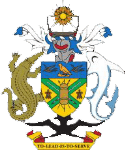Solomon Islands is rated as a Least Developed Country (LDC) by the World Trade Organization (WTO) and being a dual economy (subsistence and commercial), relies heavily on activities such as logging and its extractive industries such as mining to drive its economic growth aspirations.
According to a national report (Solomon Islands State of the Environment Plan 2008), the country’s development aspirations, coupled with rapid population growth and political difficulties have led to major environmental changes since Independence.
The report states the impacts of such changes are not widely realized, nor are they widely recognized. Additionally, most of these changes are carried out at levels that are unsustainable in the long run.
Introduce the negative impacts of climate change to the current national backdrop and the problem is compounded even further. These impacts – such as sea level rise and erratic weather patterns – threaten to undermine decades of development gains and future development trajectories.
According to the United Nations and other global and regional environmental and development bodies, many of the main drivers of poverty in developing countries such as the Solomon Islands are intertwined with climate change impacts.
This relationship between climate change impacts and development is also recognized by the Government of Solomon Islands and reflected through policy documents such as the National Development Strategy 2016-2035 and other government policies, plans and strategies.
At the national, the Ministry of Environment, Climate Change, Disaster Management and Meteorology (MECDM) is the key government body responsible for protecting the country's environment and natural assets while championing a path of sustainable development.
It's role is supported by sub-national bodies such as the country's provincial governments and other organisations and groups such as local communities who have an interest in seeing the country embark on a path towards sustainable development.
On such a journey, supporting adaptation measures to climate change impacts and the collection of relevant data for future expected impacts will be essential for advancing sustainable and equitable development in the Solomon Islands.
In this broader context, the need for Solomon Islands to employ options that lead to a path of green growth or sustainable growth becomes clearer.
At the International level, bodies such as the United Nations Development Programme (UNDP) is helping key government ministries within Solomon Islands – such as the ministries responsible for environment, climate change, disaster management, meteorology, development, forestry, water resources, energy and extractive industries – adapt to climate change impacts by integrating information on climate change risks and adaptation options into the country’s national and sub-national planning processes and budgets.
This support also promotes and implements integrated investments on the ground that safeguard livelihoods and protect development from possible climate change impacts in line with the UNDP’s Strategic Plan and the United Nation’s Sustainable Development Goals (SDGs).
For more information visit the Sustainable Development Knowledge Platform.

